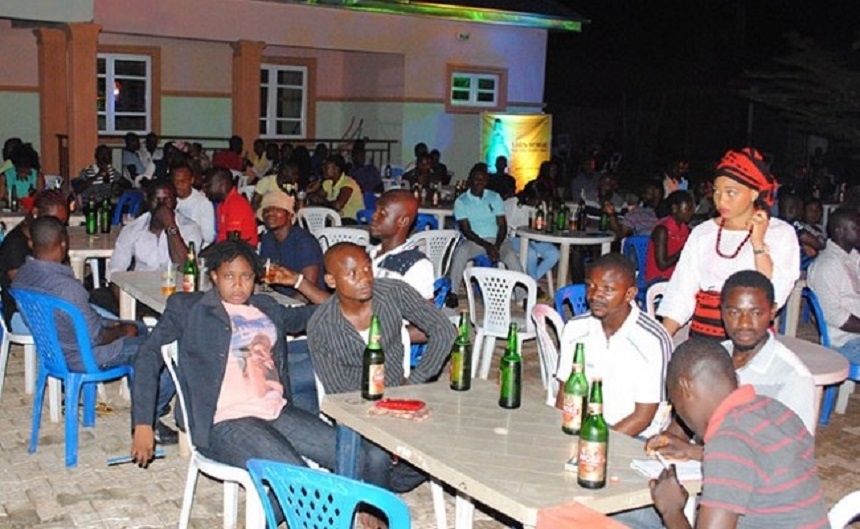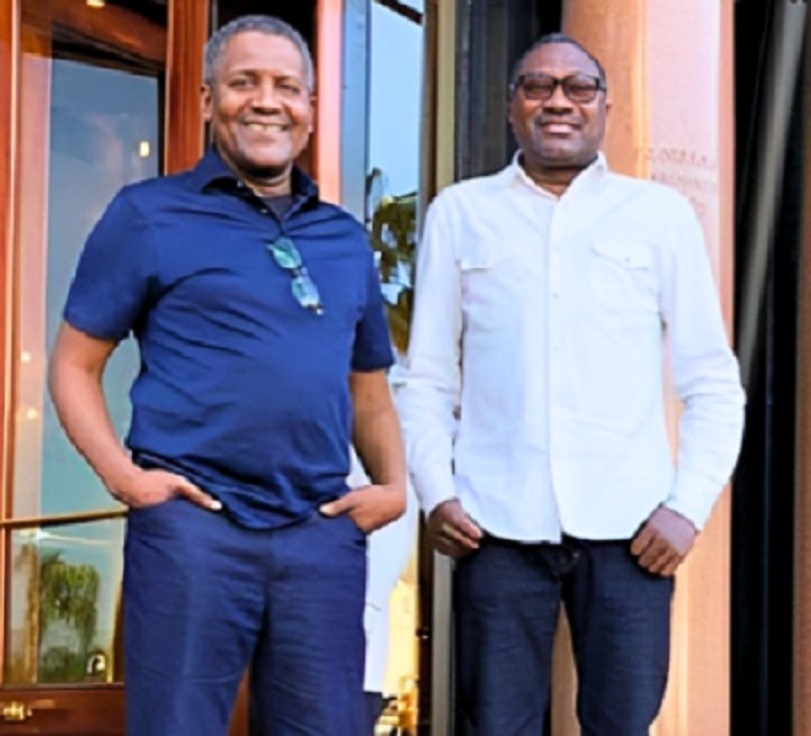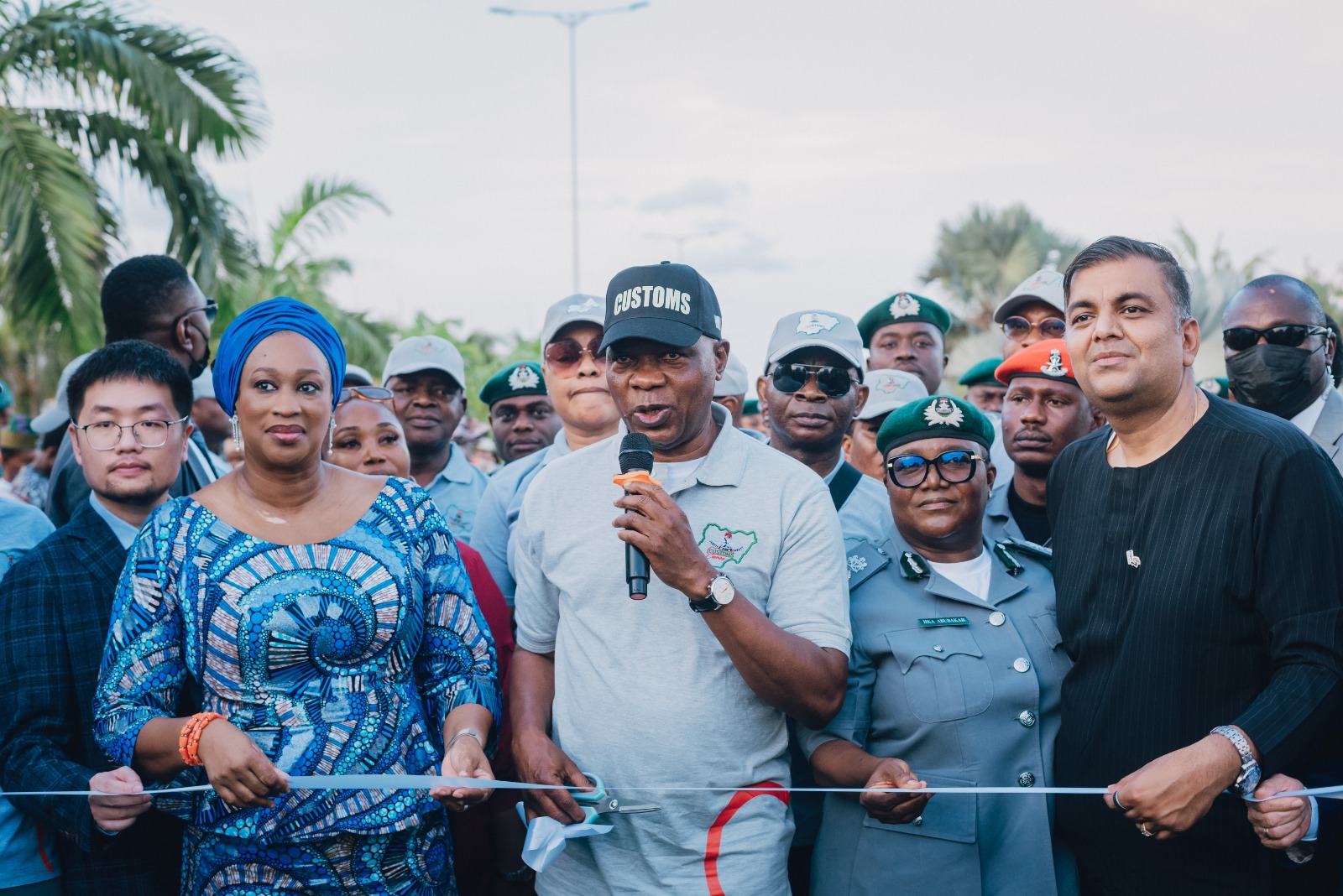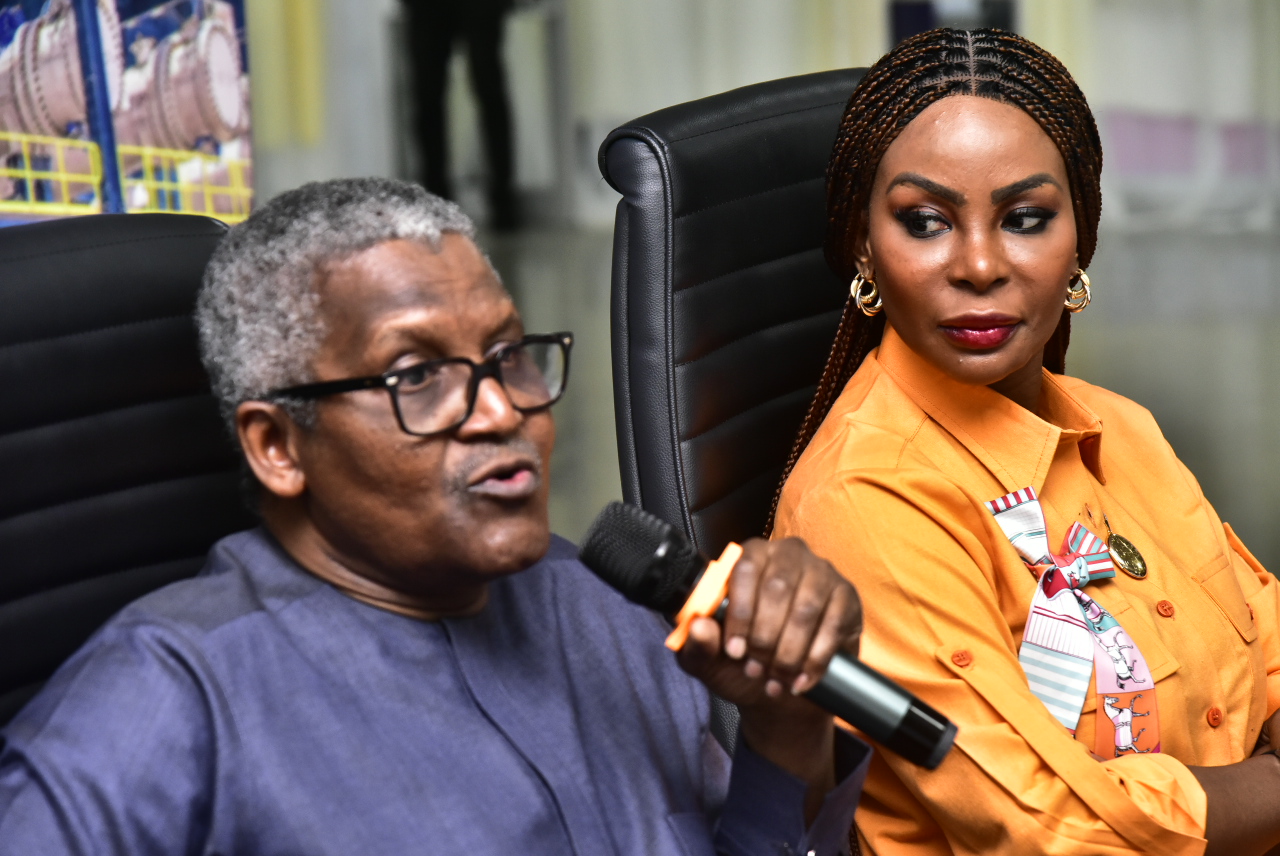Economy
Details of How to Start A Profitable Beer Parlour Business in Nigeria

By Adedapo Adesanya
One of the most profitable businesses that a would-be entrepreneur can establish in Nigeria is a bar business because many Nigerians like to be happy amid the sufferings and drinks, especially those with alcohol, provide that happiness option.
Like many other businesses, running a bar, usually called beer palour, has things one should put into consideration before venturing into and they would be highlighted in this piece.
Interest
The first consideration is interest. This comes in many forms. The interest of the entrepreneur will determine whatever mission and vision he or she has for the business. Without interest in the beer parlour business, a lot of things can go wrong.
Size
Based on a number of factors, a beer parlour business varies is size; it may be small scale, medium scale, or large scale. A small scale can contain a maximum of 50 customers, a medium will take between 50 to 100 customers, and anything more than that means that is a large scale establishment. Once the would-be entrepreneur identifies what sort of beer parlour, he or she wants to run, issues like capital, location, and number of expected customers can follow.
This article will use a small scale beer parlour as a case study.
Capital
Running a business needs money and to start a small scale beer parlour can between N600,000 and N3 million, depending on the location the owner wants to situate the business. This will cover rent up to a year and constructing the structure to fit the taste of the entrepreneur, with the different gadgets and instruments needed to run it smoothly like sound system, television set and others.
Location
A good location is something to consider. For a small scale bar, which can house about 50 customers, it is very necessary to situate it where is accessible, where cars can park and probably in a serene environment because of entertainment.
Designs
A calm environment is the best place to situate a beer parlour. With this actualized, the beer parlour must be designed for comfort – this means that it must be conducive. If it is an open space, there will be need for fans, while in a enclosed space, it is necessary that the entrepreneur invests in more fans and air conditioning systems.
Structure
A beer parlour is a place of relaxation; therefore, there must be a good structure such as rest rooms, kitchens, lounges, roofing, flooring, and a working water system in place because people are likely to use the restroom often due to the constant consumption of beer.
The kitchens will serve as where other side dishes that augment the beer will be prepared. This is an additional means of revenue and also used to keep more people coming. Here, you have eatables ranging from meat, pepper soup, and other local delicacies.
Also, a well-lit store may be needed for drinks that have not been refrigerated yet based on demand. This will help keep the business in stock.
Equipment and Furniture
In a beer parlour, the chairs must outnumber the customers. For a small scale with 50 customers, the entrepreneur has to make room for at least 55 chairs because of guests and tag-alongs. This may be complemented with 30 tables. With chairs costing N15,000 per dozen, the total amount to procure chairs for a small sized beer parlour should be N70,000 and with a market value of N4,000 per table, this amount to N120,000, giving a total of N190,000 for the chairs and tables.
Refrigerators are also needed (at least 2) in anticipation of high demand for beers, which most consumers prefer. Refrigerators are needed to cool the drinks. An average fridge costs N120,000 and two will amount to at least N240,000. Alternatively, an entrepreneur can go for chillers, in the same price range, which prevent bottles from breaking and losses for the business.
Another item needed is the television set and sound system; they serve entertainment purposes. A TV set can be purchased for as low as N45,000 (32 inch) and a sound system of like N15,000 are good to keep the customers entertained while ‘chilling’ at your bar.
You can also keep N100,000 for openers, glass cups, straws, and other miscellaneous items, including subscription for payTV services to show European Club football matches, which attract huge following.
Estimated Total:N580,000.
Registering the business
A registered business gives it an authentic outlook, hence, the business should be registered with the Corporate Affairs Commission (CAC) under a name. In addition, all other entities that deal with consumption must be alerted in order to carry out routine checkup for health and service compliance.
Get A Wholesaler
The beer parlour business is a retail business and to get drinks at cheaper prices, it is advisable to get a wholesaler who will provide the drinks in large quantity.
A beer parlour business is a very demanding task, therefore, the principal must constantly think of ways to keep his or her customers satisfied, because the customers will determine the outcome to a large extent.
Setting up a profitable beer parlour business can be tasking but it can be done right by following the steps outlined above. You also have to make your customers feel at home to keep them coming back to drink at your place. You should constantly ask them things you need to improve on.
Economy
Expect Naira Below N1,000/$1 with Dangote Refinery at Full Capacity—Otedola

By Adedapo Adesanya
Nigerian businessman, Mr Femi Otedola, has congratulated his billionaire friend, Mr Aliko Dangote, on the Dangote Refinery achieving its full nameplate capacity of 650,000 barrels per day, expressing optimism that this will further strengthen the Naira against the US Dollar in the currency market.
In an X post on Thursday, Mr Otedola described it as a transformative milestone for Nigeria and Africa, noting that the refinery’s operations could ease pressure on Nigeria’s foreign exchange reserves.
“I congratulate my friend and brother, @AlikoDangote, on the remarkable achievement of the Dangote Petroleum Refinery reaching its full 650,000 barrels per day capacity.
“More importantly, it is transformational for Nigeria and Africa. Supplying up to 75 million litres of PMS daily changes our energy narrative and conserving foreign exchange.
“With domestic refining now firmly underway after decades of reliance on imports, pressure on the foreign exchange market should ease significantly. I am optimistic that the Naira will strengthen meaningfully, and trading below N1,000/$1 before year-end is increasingly within reach,” he wrote.
Earlier today, it was reported that all key components, including the naphtha hydrotreater, isomerisation unit, and reformer unit, of the single train refinery are now operating steadily at 650,000 barrels per day. This enables the facility to produce up to 75 million litres of Premium Motor Spirit (petrol) daily, significantly boosting Nigeria’s domestic fuel supply and reducing reliance on imports.
The $20 billion refinery, Africa’s largest, began operations in 2023 and has been ramping up production amid challenges, including crude supply issues.
Mr Dangote announced plans in October 2025 to expand capacity to 1.4 million barrels per day, which would make it the world’s largest refinery, surpassing India’s Jamnagar facility.
Mr Otedola added that his best friend is investing an additional $12 billion in this expansion, including the production of polypropylene and Linear Alkyl Benzene for detergents, with work already underway.
“Aliko is not stopping here. He has embarked on an additional $12 billion expansion to increase refining capacity to 1.4 million barrels per day, alongside 2.4 million tons of polypropylene and 400,000 metric tons of Linear Alkyl Benzene for detergent production. Work has already commenced in earnest.
“Congratulations once again, my brother. Nigeria is proud of you,” he said.
Economy
Trade Facilitation: Customs Okays Lagos Free Zone Green Channel

By Modupe Gbadeyanka
The Nigeria Customs Service (NCS) has approved the activation of the Lagos Free Zone Green Channel to enable the seamless and controlled movement of Free Zone cargo directly from the Lekki Deep Sea Port to the Lagos Free Zone (LFZ).
This development makes LFZ the first and only zone in the country to operate a sanctioned green channel, reflecting globally recognised port-to-free-zone logistics and customs integration models successfully implemented in leading trade hubs in the Middle East and Asia.
With this, businesses in the Lagos Free Zone can now scale their industrial output with total peace of mind, as every consignment is protected by an unbroken chain of 24/7 CCTV surveillance, telemetry, and tamper-evident digital logs that ensure absolute cargo integrity.
This integration not only secures the supply chain but also builds unrivalled investor confidence by establishing a transparent, high-compliance trade environment monitored directly by the customs.
For manufacturers and distributors, the outcome is a predictable, ultra-fast logistics flow that solidifies LFZ as the most efficient regional hub for Nigerian and West African operations.
“This approval is a testament to our commitment to trade modernisation. The Lagos Free Zone Green Channel will enhance Customs visibility while significantly improving investor confidence in Nigeria’s Special Economic Zones,” the Comptroller-General of Customs, Mr Bashir Adeniyi,” stated.
On her part, the chief executive of LFZ, Mrs Adesuwa Ladoja, said, “The activation of the Lagos Free Zone Green Channel is the latest testament to our customer-centricity and our commitment to continually deliver enhanced ease of doing business for our tenants.
“The Green Channel solidifies the advantages of Lekki Deep Sea Port being physically and digitally integrated into our zone. We have effectively removed the ‘last mile’ uncertainty that has historically challenged Nigerian logistics.
“Our tenants no longer need to navigate the complexities of traditional port exits; instead, they benefit from a high-velocity, customs-integrated corridor that moves cargo with precision and speed.
“This is a game-changer for manufacturing and regional distribution, reinforcing Lagos Free Zone as the premier gateway for those looking to dominate the West African market.”
Economy
Dangote Refinery Finally Hits Full 650,000-Barrel Per Day Capacity

By Adedapo Adesanya
Dangote Refinery has reached its full capacity of 650,000 barrels per day following the successful optimisation of critical processing units, marking a turning point for Africa’s largest refinery, located in Lagos.
The $20 billion facility is now operating at full capacity, a world-record milestone for a single-train refinery.
This achievement comes after the completion of an intensive performance testing on the refinery’s Crude Distillation Unit and Motor Spirit production block.
According to the chief executive of Dangote Refinery, Mr David Bird, the refinery is now positioned to supply up to 75 million litres of petrol daily to the domestic market, a dramatic increase from the 45 million – 50 million litres delivered during the recent festive period.
The development can reshape Nigeria’s energy landscape and reduce the country’s longstanding dependence on imported refined products.
“Our teams have demonstrated exceptional precision and expertise in stabilising both the CDU and MS Block,” Mr Bird said. “This milestone underscores the strength, reliability, and engineering quality that define our operations.”
The refinery has completed a 72-hour series of performance test runs in collaboration with technology licensor UOP, a Honeywell company, to validate operational efficiency and confirm that all critical parameters meet international standards.
The tests covered the naphtha hydrotreater, isomerisation unit, and reformer unit, which together form the backbone of the facility’s gasoline production capability.
The milestone marks another achievement for the businessman and majority stake owner at the facility in his ambition to transform Nigeria from Africa’s largest crude oil producer into a refining powerhouse.
Since the commencement of the facility in 2016, it has faced numerous setbacks, including pandemic-related delays, foreign exchange challenges, and technical complications.
It was finally commissioned in May 2023 to help wean Nigeria off imported petroleum products, due to the chronic underperformance of its state-owned refineries.
Despite being Africa’s largest crude producer, the country has not been able to self-produce, even with four state-owned refineries with a combined capacity of 445,000 barrels per day. This has led to decades of high dependency on importation.
The Dangote refinery’s emergence at full capacity has the potential to eliminate this import dependence while positioning Nigeria as a net exporter to West African markets.
Yet, the refinery faces difficulty securing adequate crude oil supplies from Nigerian producers, forcing it to import feedstock from the US, Brazil, Angola, and other countries.
Mr Bird also confirmed that Phase 2 performance test runs for the remaining processing units are scheduled to commence next week, suggesting further capacity optimisation ahead.
The official emphasised the refinery’s commitment to “enhancing Nigeria’s energy security while supporting industrial development, job creation, and economic diversification.”
-

 Feature/OPED6 years ago
Feature/OPED6 years agoDavos was Different this year
-
Travel/Tourism10 years ago
Lagos Seals Western Lodge Hotel In Ikorodu
-

 Showbiz3 years ago
Showbiz3 years agoEstranged Lover Releases Videos of Empress Njamah Bathing
-

 Banking8 years ago
Banking8 years agoSort Codes of GTBank Branches in Nigeria
-

 Economy3 years ago
Economy3 years agoSubsidy Removal: CNG at N130 Per Litre Cheaper Than Petrol—IPMAN
-

 Banking3 years ago
Banking3 years agoSort Codes of UBA Branches in Nigeria
-

 Banking3 years ago
Banking3 years agoFirst Bank Announces Planned Downtime
-

 Sports3 years ago
Sports3 years agoHighest Paid Nigerian Footballer – How Much Do Nigerian Footballers Earn













1 Comment